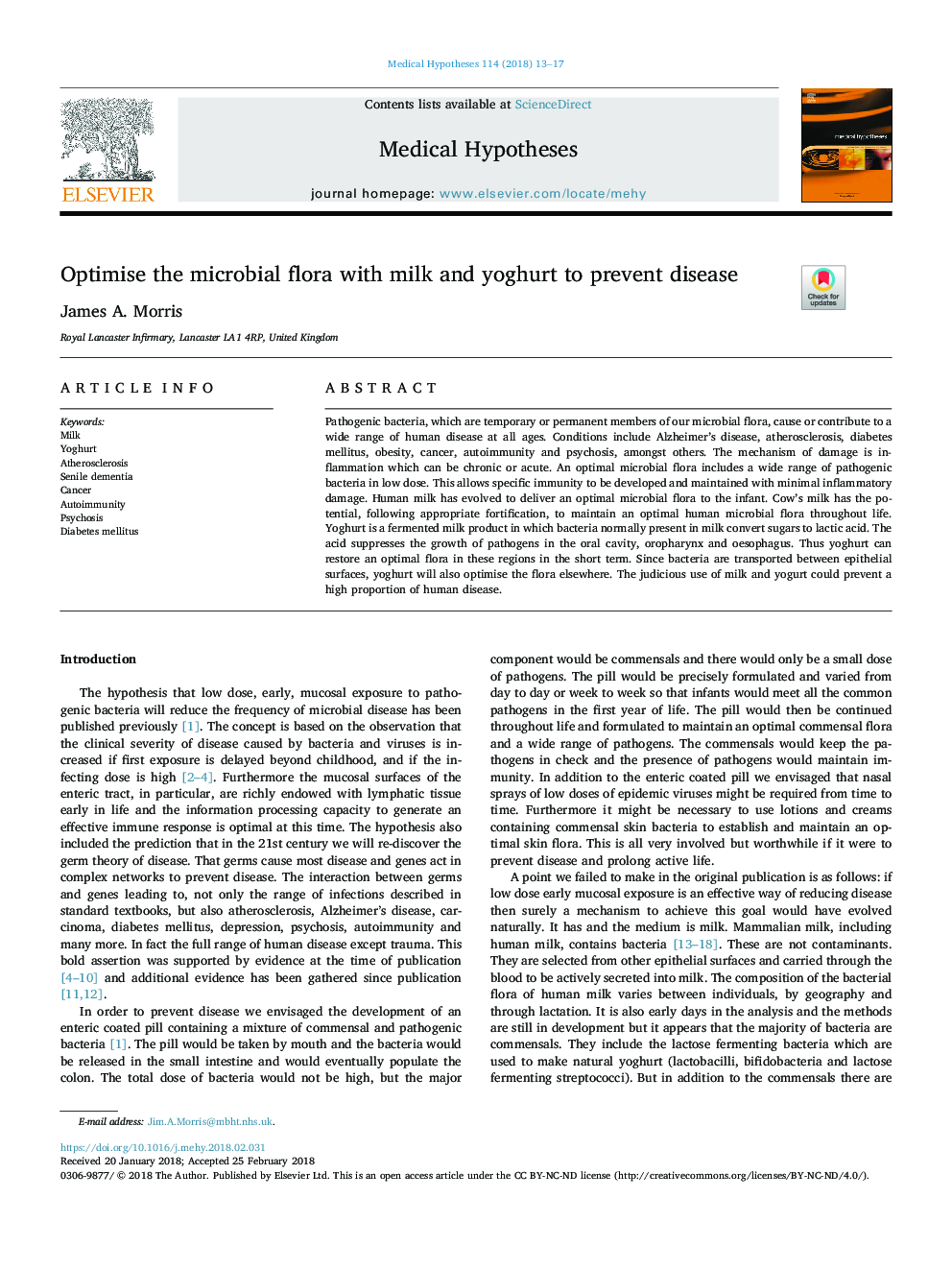| Article ID | Journal | Published Year | Pages | File Type |
|---|---|---|---|---|
| 8515744 | Medical Hypotheses | 2018 | 5 Pages |
Abstract
Pathogenic bacteria, which are temporary or permanent members of our microbial flora, cause or contribute to a wide range of human disease at all ages. Conditions include Alzheimer's disease, atherosclerosis, diabetes mellitus, obesity, cancer, autoimmunity and psychosis, amongst others. The mechanism of damage is inflammation which can be chronic or acute. An optimal microbial flora includes a wide range of pathogenic bacteria in low dose. This allows specific immunity to be developed and maintained with minimal inflammatory damage. Human milk has evolved to deliver an optimal microbial flora to the infant. Cow's milk has the potential, following appropriate fortification, to maintain an optimal human microbial flora throughout life. Yoghurt is a fermented milk product in which bacteria normally present in milk convert sugars to lactic acid. The acid suppresses the growth of pathogens in the oral cavity, oropharynx and oesophagus. Thus yoghurt can restore an optimal flora in these regions in the short term. Since bacteria are transported between epithelial surfaces, yoghurt will also optimise the flora elsewhere. The judicious use of milk and yogurt could prevent a high proportion of human disease.
Related Topics
Life Sciences
Biochemistry, Genetics and Molecular Biology
Developmental Biology
Authors
James A. Morris,
